Many small construction companies struggle to keep track of leads, manage projects, and maintain customer relationships. This is a common scenario for many small businesses in the construction industry. The right CRM can help address these challenges by providing a centralized platform for managing customer data, automating tasks, and improving communication. This guide will help you find the best CRM for small construction businesses to streamline your operations and grow your business.
Toc
- 1. Why the Best CRM for Small Construction Businesses is Essential
- 2. Key Features to Look for in a Construction CRM
- 3. Top CRM Options for Small Construction Businesses
- 4. Benefits of CRM for Small Construction Businesses
- 5. Tips for Choosing the Right CRM for Your Construction Business
- 6. Selecting the Right CRM for Your Construction Business
- 7. Maximizing the Benefits of a CRM for Your Construction Business
- 8. Emerging Trends in Construction CRM
- 9. Frequently Asked Questions
- 10. Conclusion
- 11. Related articles 02:
- 12. Related articles 01:
Why the Best CRM for Small Construction Businesses is Essential

The construction industry is fast-paced and complex, requiring small businesses to juggle multiple responsibilities. A CRM (Customer Relationship Management) system is not just an optional tool; it’s essential for small construction businesses looking to thrive. Here’s how the best CRM for small construction businesses can transform your operations:
- Centralized Customer Data Management: Keep all your customer information in one easily accessible place, reducing the risk of lost leads and improving communication. For instance, a construction company can track all communication with a client, from initial inquiries to project updates and invoices, within the CRM. This ensures a unified view of customer interactions, preventing miscommunication and fostering better relationships. A CRM can also store important client details like project specifications, payment history, and contact information, making it easier for teams to access and share information.
- Streamlined Sales and Marketing Processes: Automate repetitive tasks and manage your sales pipeline effectively, ensuring no opportunity is missed.
- Improved Project Management: Track project timelines, budgets, and resources efficiently, leading to better project delivery. A CRM can facilitate project collaboration by allowing team members to share updates, assign tasks, and track progress in real-time. For example, a project manager can use the CRM to monitor the progress of subcontractors, set deadlines for specific tasks, and track resource allocation. This helps ensure everyone is on the same page and contributes to smoother project execution.
- Enhanced Reporting and Analytics: Gain insights into your business performance, helping you make data-driven decisions to boost profitability.
- Improved Customer Satisfaction: By having all necessary information at your fingertips, you can provide timely and personalized service to your clients.
- Automated Repetitive Tasks: Free up valuable time by automating routine tasks, allowing your team to focus on more critical aspects of the business. For instance, a CRM can automate sending follow-up emails to clients after a meeting, scheduling reminders for upcoming deadlines, or generating invoices automatically. This frees up valuable time for construction teams to focus on core tasks like project planning and client communication.
- Data-Driven Insights for Decision-Making: Use analytics to identify trends and areas for improvement, ultimately leading to better business strategies.
- Increased Productivity and Efficiency: With streamlined processes, your team can work more efficiently, reducing overhead costs and increasing output.
Investing in a CRM is not just about managing contacts; it’s about transforming the very foundation of your construction business operations.
Key Features to Look for in a Construction CRM
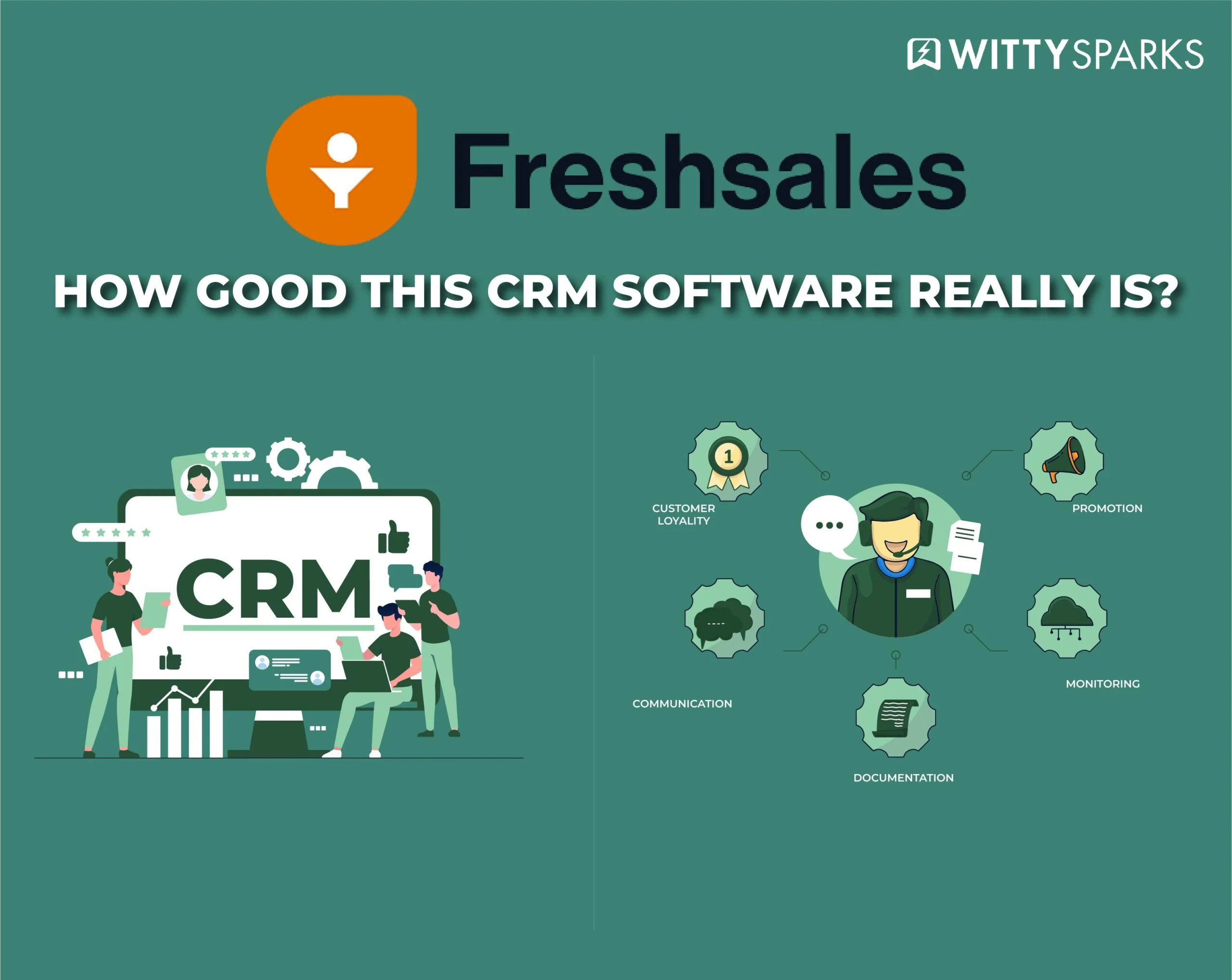
When searching for the best CRM for contractors, it’s crucial to consider features that cater specifically to the construction industry. Here are some must-have features to look for:
Lead Management and Sales Pipeline
An effective CRM should facilitate the entire sales process. Look for features that include:
- Lead Capture, Qualification, and Scoring: Automatically gather leads from various sources and prioritize them based on engagement.
- Automated Follow-Up and Nurturing: Set up automated emails and reminders to keep potential clients engaged.
- Visual Sales Pipeline Management: Track your deals visually, making it easier to forecast sales and manage opportunities.
- Lead Generation Tools: Ensure the CRM has tools to help you attract new leads effectively.
- Sales Forecasting and Reporting: Analyze sales trends and predict future revenues.
Project Management
Managing construction projects requires specific tools. Key project management features include:
- Task Management and Deadline Tracking: Assign tasks, set deadlines, and monitor progress in real-time.
- Client and Subcontractor Communication: Facilitate seamless communication to keep everyone on the same page.
- Resource Allocation and Scheduling: Optimize the use of resources and manage schedules efficiently.
- Budget Tracking and Reporting: Keep a close eye on project finances to avoid overruns.
- Project Collaboration Tools: Enable team members to collaborate effectively on project tasks.
- Time Tracking and Invoicing: Track hours worked and streamline the invoicing process for accurate billing.
Financial Management
A CRM should also assist in maintaining financial health:
- Invoice Creation and Management: Generate and send invoices quickly and easily.
- Payment Processing and Tracking: Streamline payment processing for faster cash flow.
- Expense Tracking and Reporting: Monitor expenses to ensure profitability on each project.
- Job Costing and Profitability Analysis: Analyze costs associated with each job to determine profitability.
- Integration with Accounting Software: Ensure seamless integration with popular accounting tools like QuickBooks.
Reporting and Analytics
Data is crucial for making informed decisions:
- Sales Performance and Project Profitability Analysis: Understand what’s working and what’s not.
- Customer Satisfaction and Feedback Tracking: Measure client satisfaction to improve service delivery.
- Marketing Campaign Effectiveness Measurement: Assess the ROI of your marketing efforts.
- Business Intelligence and Data Visualization Tools: Use advanced analytics to visualize business performance.
- Customizable Reports and Dashboards: Tailor reports to meet your specific business needs.
Top CRM Options for Small Construction Businesses
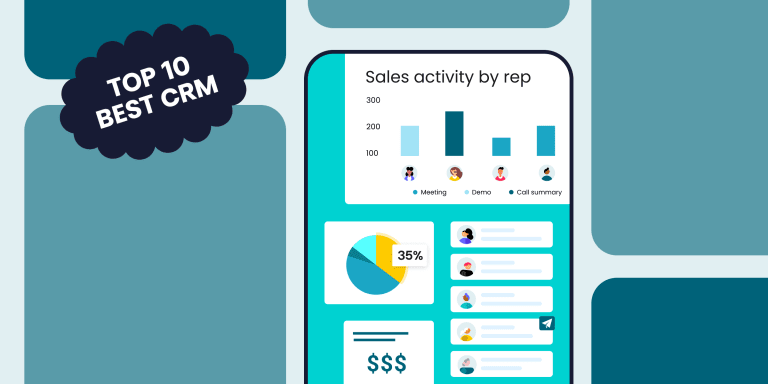
Now that you know what features to look for, let’s explore some of the top CRM solutions tailored for small construction businesses:
Salesmate
Salesmate is a user-friendly, cloud-based CRM designed to help construction businesses enhance sales and manage customer relationships. It offers features like lead and contact management, automated workflows, and mobile accessibility. Its integration capabilities with various business apps streamline operations effectively.
Pros:
- User-friendly interface
- Affordable pricing
- Extensive automation features
Cons:
- Limited reporting features compared to some competitors
Zoho CRM
Zoho CRM provides a comprehensive solution for small construction businesses. It boasts robust project management capabilities, extensive customization options, and strong customer support. The availability of a free plan makes it a cost-effective option for smaller teams.
Pros:
- Free plan available for small teams
- Comprehensive features
- Excellent customer support
Cons:
- Can be overwhelming for beginners
- May require additional integrations for specific needs
HubSpot CRM
HubSpot CRM is popular among small construction businesses due to its intuitive interface and powerful marketing automation tools. While it may lack advanced project management features, its lead management and email campaign capabilities are top-notch.
Pros:
- Free plan for up to five users
- Powerful marketing automation tools
- Intuitive interface
Cons:
- Limited project management features compared to some competitors
JobNimbus
JobNimbus is an industry-specific CRM tailored for roofing and remodeling contractors. It offers robust project management tools, mobile accessibility, and strong integrations with QuickBooks. With a focus on customer service, it’s an excellent choice for small construction businesses prioritizing support.
Pros:
- Designed for specific construction niches
- Excellent project management capabilities
- Strong customer support
Cons:
- Limited sales and marketing features
- No free plan available
Jobber
Jobber excels at job quoting, scheduling, and management. It provides a client hub for communication and payments, alongside comprehensive job management features. While its marketing features may be limited, it remains a solid choice for small construction businesses focused on efficient project delivery.
Pros:
- Robust job management features
- Easy-to-use interface
- Integrations with QuickBooks
Cons:
- Limited marketing features
- Higher-priced plans compared to some competitors
Benefits of CRM for Small Construction Businesses
Investing in the best CRM for small construction businesses can lead to significant advantages:
- Streamlined Operations: By automating tasks and centralizing information, CRMs help construction businesses operate more efficiently.
- Enhanced Communication: Improved communication tools within a CRM foster better collaboration among team members and with clients.
- Increased Sales: With better lead management and sales tracking, businesses can capitalize on more opportunities and boost their sales figures.
- Improved Customer Relationships: CRMs allow for personalized interactions with clients, enhancing overall customer satisfaction.
Tips for Choosing the Right CRM for Your Construction Business
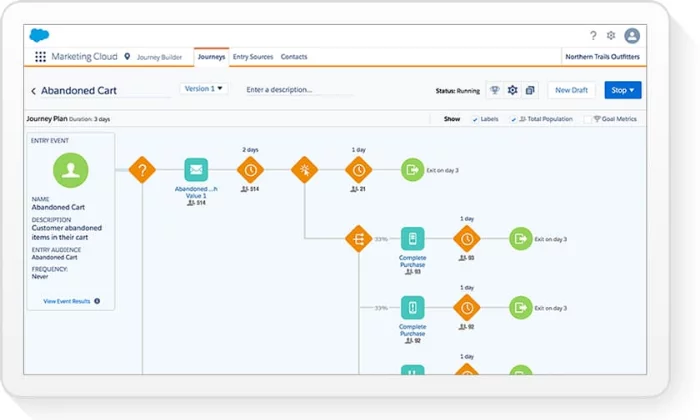
Selecting the best CRM for small construction businesses requires careful consideration. Here are some practical tips:
- Define Your Needs and Priorities: Start by identifying your specific requirements, such as lead management, project tracking, financial management, or reporting needs.
- Consider Your Budget and Scaling Needs: Evaluate pricing plans and ensure the CRM can grow with your business.
- Evaluate Features and User-Friendliness: Assess the CRM’s features and ensure they align with your needs. Consider the platform’s ease of use for your team.
- Check for Integrations with Your Existing Software: Ensure the CRM seamlessly integrates with the other tools you use, such as accounting software or project management platforms.
- Read Reviews and Testimonials: Research online reviews and customer testimonials to understand the CRM’s performance, reliability, and customer support.
- Take Advantage of Free Trials: Most CRM providers offer free trials, so take the time to test the platform and ensure it meets your requirements.
- Seek Professional Advice if Needed: If you’re unsure about the best CRM for your construction business, consider consulting with an industry expert or a CRM specialist.
Selecting the Right CRM for Your Construction Business
While some may argue that traditional methods like spreadsheets and email communication are sufficient for small construction businesses, these methods often lack the organization, automation, and data insights provided by a dedicated CRM. While the initial investment in a CRM might seem daunting, the long-term benefits in terms of efficiency and profitability outweigh the initial costs.
Maximizing the Benefits of a CRM for Your Construction Business
Implementing a CRM can bring numerous benefits to your small construction business, but to truly maximize its impact, you’ll need to integrate it into your daily workflows and foster user adoption. Here are some strategies to consider:
- Involve Your Team: Gather feedback from your sales, project management, and accounting staff to ensure the chosen platform meets their needs and aligns with your business processes.
- Invest in Training: Provide your team with the necessary training on the CRM’s features and capabilities. Encourage them to use the system regularly and provide ongoing support to address any questions or challenges they may face.
- Leverage Data Insights: Regularly review your CRM data and use the insights to inform your decision-making. Analyze sales figures, project performance, and customer satisfaction metrics to identify areas for improvement and opportunities for growth.
Emerging Trends in Construction CRM
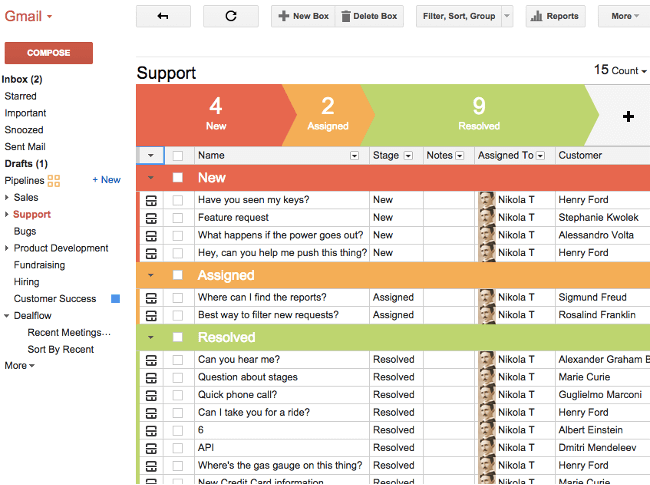
Staying informed about current trends can help your business leverage the best CRM for contractors effectively:
- AI-Powered Insights: AI is increasingly integrated into CRMs, providing valuable insights into customer behavior and project performance. This can help construction businesses make data-driven decisions, optimize resource allocation, and identify potential risks.
- Mobile-First Approach: Mobile-friendly CRMs are becoming increasingly popular as construction professionals need access to critical information on the go. This allows teams to manage projects, communicate with clients, and track progress from anywhere.
- Integration with IoT Devices: CRMs are being integrated with IoT devices, allowing for real-time data collection from construction sites. This data can be used to monitor project progress, track equipment usage, and improve safety protocols.
Frequently Asked Questions
Q: What are the benefits of using a CRM for a small construction business?
A: CRMs help small construction businesses streamline operations, improve efficiency, increase customer satisfaction, automate tasks, save costs, and provide valuable insights.
Q: What are some key features to look for in a construction CRM?
A: Key features include lead management, project management, financial management, reporting and analytics, mobile accessibility, and integrations with other business apps.
Q: How do I choose the right CRM for my construction business?
A: Consider your budget, scaling needs, specific features, integrations, user-friendliness, and reviews to choose the best CRM for your construction business.
Q: Is there a free CRM option for small construction businesses?
A: Yes, HubSpot CRM offers a free plan with basic features, and Zoho CRM also has a free plan with limited functionality.
Conclusion
Investing in the best CRM for small construction businesses is a strategic move for any company looking to streamline operations, boost sales, and build stronger customer relationships. By taking the time to research different CRM options, trying out free trials, and choosing the solution that best fits your needs, you can set your construction business up for long-term success.
Remember, the key is to fully integrate the CRM into your daily workflows, ensure user adoption, and leverage the data-driven insights it provides. With the right CRM in place, you can enhance your operational efficiency, improve customer satisfaction, and ultimately grow your small construction business to new heights.
1. https://fordlangha.com.vn/mmoga-the-best-crm-for-consultants-boost-your-sales-efficiency-in-2024
2. https://fordlangha.com.vn/mmoga-google-cloud-ai-platform-a-comprehensive-guide-for-data-scientists
3. https://fordlangha.com.vn/mmoga-the-best-crm-for-small-businesses-a-comprehensive-guide




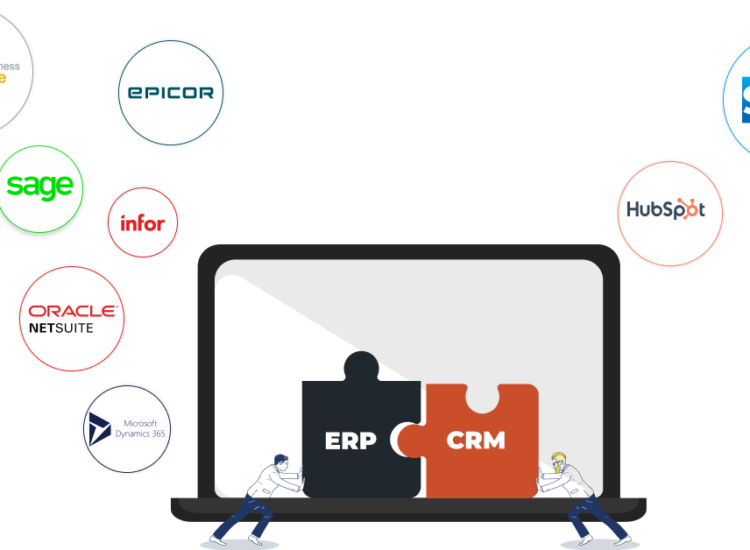
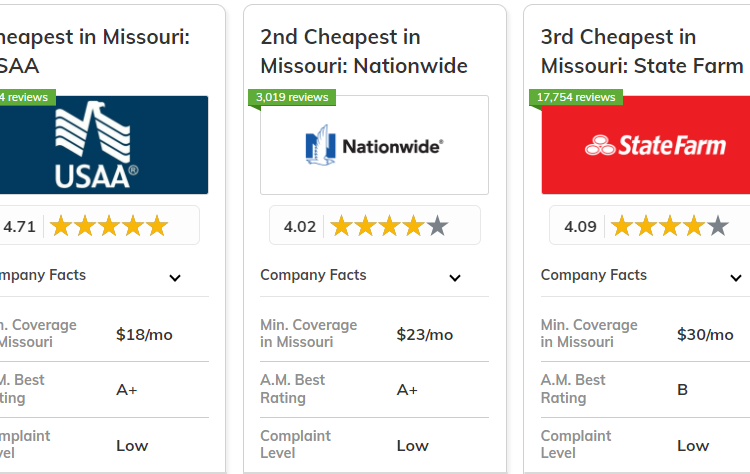



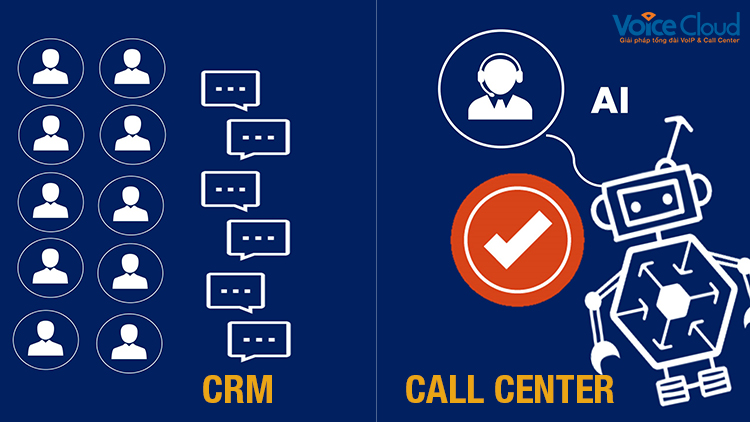

Leave a Reply